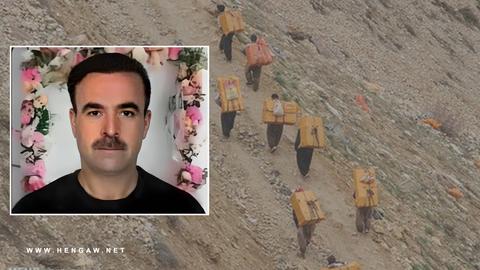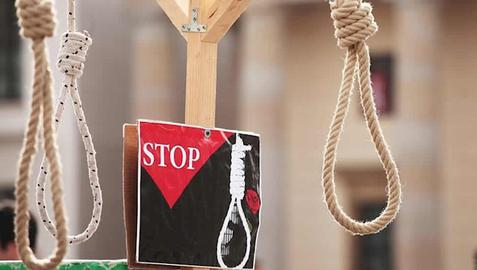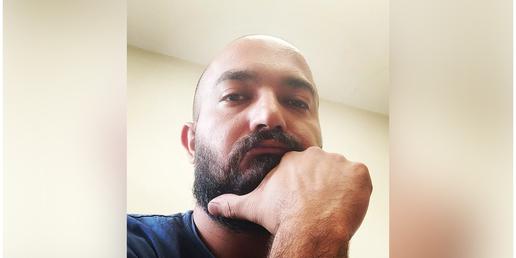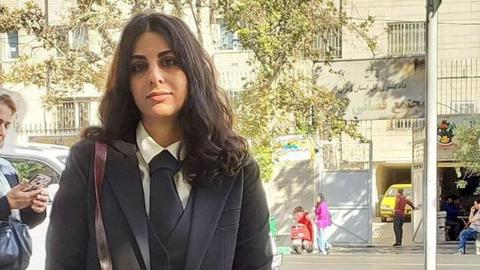In a new report, Amnesty International reveals how Iranian security forces used rape and other sexual violence to “torture, punish and inflict lasting physical and psychological damage” on peaceful protesters, including children, during last year’s Woman Life Freedom uprising.
The report, titled “‘They violently raped me:’ Sexual violence weaponized to crush Iran’s ‘Woman Life Freedom’ uprising,” documents the ordeals of 45 victims of sexual violence, including 26 men, 12 women and seven children, by intelligence and security forces following their arbitrary arrest.
Sixteen of the 45 survivors were raped, including six women, seven men, a 14-year-old girl and two boys aged 16 and 17. Six of them, four women and two men, were gang raped by up to 10 male agents.
The prevalence of sexual violence during the uprising is difficult to estimate, as stigma and fears of reprisals usually lead to under-reporting.
However, Amnesty International’s Secretary-General Agnés Callamard says in a statement that the harrowing testimonies collected by the London-based human rights group “point to a wider pattern in the use of sexual violence as a key weapon in the Iranian authorities’ armory of repression of the protests and suppression of dissent to cling to power at all costs.”
Iranian authorities have not charged any officials for the instances of rape and other sexual violence documented in the report.
“Iran’s prosecutors and judges were not only complicit by ignoring or covering up survivors’ complaints of rape, but also used torture-tainted ‘confessions’ to bring spurious charges against survivors and sentence them to imprisonment or death,” Callamard says. “Victims have been left with no recourse and no redress; only institutionalized impunity, silencing and multiple physical and psychological scars running deep and far.”
Perpetrators of sexual violence included agents from the Islamic Revolutionary Guard Corps (IRGC), the paramilitary Basij force, and the Ministry of Intelligence, as well as different branches of the police force, Amnesty International says.
Survivors included women and girls who had removed their mandatory headscarves in public, as well as men and boys who took to the streets to express their outrage at “decades of oppression and entrenched gender-based discrimination.”
According to the report, state agents “raped women and girls vaginally, anally and orally, while men and boys were raped anally.”
They “were raped with wooden and metal batons, glass bottles, hosepipes, and/or agents’ sexual organs and fingers.”
Rape took place in detention facilities and police vans, as well as schools or residential buildings repurposed as detention places.
Forms of sexual violence other than rape involved “state agents grabbing, groping, beating, punching, and kicking survivors’ breasts, genitals and buttocks; enforcing nudity, sometimes in front of video cameras; administrating electric shocks, inserting needles or applying ice to men’s testicles; forcibly cutting women’s hair and/or dragging them violently by their hair; and threats to rape survivors and/or their relatives,” the report says.
Sexual violence were “frequently accompanied by other forms of torture and ill-treatment, including beatings, floggings, electric shocks, administration of unidentified pills or injections, denial of food and water, and cruel and inhuman detention conditions.”
Survivors were routinely denied medical care.
The overwhelming majority of survivors told Amnesty International that they did not file complaints after release, fearing further harm.
Three victims of sexual violence raised formal complaints, but two were forced to withdraw them after security forces threatened to kidnap and/or kill them or their relatives, while the third was told by an official that he “mistook” a body search for sexual violence.
The survivors told Amnesty International that they continued to deal with the physical and psychological traumas of sexual violence.
The mother of a schoolboy who was raped said that her son attempted suicide twice while in custody.
“Without political will and fundamental constitutional and legal reforms, structural barriers will continue to plague Iran’s justice system, which has time and again exposed its shameful inability and unwillingness to effectively investigate crimes under international law,” Callamard said.
She urged the international community to stand with the survivors of sexual violence and pursue justice by supporting the extension of the mandate of the UN fact-finding mission on Iran to ensure an independent mechanism continues to collect, preserve and analyze evidence of gross human rights violation.
Meanwhile, states should initiate criminal investigations against suspected perpetrators under the principle of universal jurisdiction, with a view to issuing international arrest warrants, Callamard said.
visit the accountability section
In this section of Iran Wire, you can contact the officials and launch your campaign for various problems


























comments